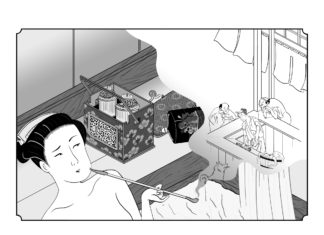Il y a 80 ans, la ville de Guernica dans le Pays Basque fut bombardée par l’aviation allemande et italienne. Ce fut un des crimes les plus atroces de toute la Guerre d’Espagne. Même si les Etats-Unis restèrent neutres durant le conflit, des milliers de jeunes américains se sont engagés dans la « Brigade Abraham Lincoln » afin de combattre le fascisme.
Inspiré par ces volontaires, Abraham Lincoln Brigade Archives (ALBA) est une organisation destinée à promouvoir l’activisme social et la défense des droits de l’Homme. Marina Garde, Directrice d’ALBA et ancienne experte à l’ONU, nous parle de cette organisation indépendante qui enseigne l’héritage du combat anti-fasciste.
– Delmer Berg, le dernier survivant de la Brigade Abraham Lincoln, est décédé l’année dernière. Même le Sénateur républicain John McCain a rendu hommage à ce communiste américain. Quel personnage était-il avec vous?
Il était gentil et généreux, et malgré son âge, il restait pertinent et intéressé par le monde. C’était un vrai humaniste.

– Pour quelles raisons les actions de la Brigade Abraham Lincoln restent une inspiration pour le présent et pour les générations futures?
Les volontaires anti-fascistes de la Brigade ont toujours été de vrais exemples pour les mouvements de gauche dans le monde entier. Il y a toujours un drapeau des brigades internationales ou encore l’étoile à trois pointes dans les manifestations contre les néo nazis, l’oppression étatique, les guerres,… Aujourd’hui, cet exemple est d’autant plus important.
– Quel rôle militaire ont contribué les volontaires américains durant la Guerre d’Espagne?

Les volontaires américains, tout comme le reste des brigades internationales, ont souvent servi comme troupes de chocs, pour les assauts frontaux afin de repousser les attaques fascistes et soutenir l’armée républicaine. Leurs pertes ont été élevées.
– Pensez-vous que le rôle des femmes (quelque soit la nationalité) dans la Guerre d’Espagne a été suffisamment expliqué?
Lisa Lines, Shirley Mangini, Paul Preston ou Mary Nash entre autres ont étudié avec minutie le rôle des femmes durant le conflit.
rôle des femmes durant le conflit.
D’origines différentes, elles ont participé à la guerre dans toutes les activités possibles. Même si elles étaient très peu à combattre (peut-être que quelques centaines), les femmes étaient déjà sur le front dès les premiers jours et avant même que la République n’organise des unités combattantes. Les femmes étaient surtout importantes à l’arrière du front dans le service de propagande ou dans les hôpitaux.
– Pensez-vous que l’Espagne et les Etats-Unis doivent mieux étudier leur passé? Est-ce important selon vous qu’un pays puisse également regarder les aspects les plus douloureux de son histoire?
L’Espagne a encore du chemin à faire pour la reconnaissance des crimes du gouvernement de Franco et le gouvernement américain n’est pas encore prêt de reconnaître ni le sacrifice héroïque des hommes et des femmes de la Brigade Abraham Lincoln ni la politique de harcèlement qu’ils ont subi à leur retour au pays.
– Le Président Ronald Reagan avait affirmé que les volontaires américains « qui sont allés en Espagne avait, selon la majorité de leurs concitoyens, choisi le mauvais côté ». Les actions de la Brigade Abraham Lincoln sont-elles encore aujourd’hui sujet de conversations?
Après l’hommage appuyé de John McCain, le climat s’est apaisé. L’anti-communisme primaire a disparu et certains américains ont à présent un avis plus nuancé et plus réaliste au sujet des volontaires de la brigade Lincoln.
– C’est quoi vivre dans un pays où Donald Trump est président?
Cela rend impératif pour des organisations d’éducation comme ALBA de continuer à informer la population des dangers du passé et du présent véhiculés par le paternalisme et les idéologies xénophobes.
– Quels sont les projets futurs d’ALBA?
Nous allons continuer nos projets éducatifs qui diffusent aux jeunes américains cet aspect progressiste de leur histoire. Nous continuerons à organiser des débats sur le fascisme et l’anti-fascisme. Nous continuerons à soutenir ceux qui luttent pour les droits de l’Homme et le souvenir dans le monde entier.
Sources:
photo 2. Tamiment Library. Paul Burns photograph collection.
Photo 3. Salaria Kea
80 years ago, the Basque town Guernica was bombed by the Nazi-German Condor legion and the Italian Aviazione Legionaria in one of the most atrocious crimes of the Spanish civil war. Though the United States stayed neutral officially, thousands of young Americans went to Spain to join the fight against fascism as part of the international Brigades.
Inspired by the anti-fascist activism of these volunteers, the Abraham Lincoln Brigade Archives (ALBA) is an educational non-profit dedicated to promoting social activism and the defense of human rights. Marina Garde, ALBA’s Executive Director and former UN expert, spoke to us about this independent organization that seeks to preserve and teach the anti-fascist legacy of these volunteers.
– Delmer Berg, the last known living veteran of the Abraham Lincoln Brigade, died last year. Even Sen. John McCain paid tribute to this American communist. What kind of man he was with you?
He was kind and generous and, regardless of his old age, sharp and interested in the world. He was a real humanist.

– How the actions of the Abraham Lincoln Brigade are still an inspiration for present and future generations?

The Abraham Lincoln Brigade’s internationalist and anti-fascist example has long served as an inspiration for popular movements around the world. It is not uncommon to see the flag of the International Brigades or its iconic three-pointed star in demonstrations against neo-nazis, state oppression, wars, etc. Today that example is more important than ever.
– How important were the American troops militarily during the Spanish Civil war?
The American volunteers, as well as the rest of the International Brigades often served as shock troops, mounting frontal assaults and holding off fascist attacks, shoring up the embattled Republican Army. Their casualty rates were very high.
– Do you think the role of women (whatever their nationality or role) in the Civil War has been adequately explained?
The study of women in the Spanish civil war has been plentiful and intellectually rigorous with works by Lisa Lines, Shirley Mangini, Paul Preston and Mary Nash among others.
Women from many nationalities participated in the war in every function you might imagine. Women –albeit very few–perhaps only in the hundreds, served in combat positions in the early days of the war before the Republic formed an organized fighting unit. Women were most prominent in the home front and rear guard. Women also were particularly important in agitprop and medical support.
– Do you believe that Spain and the US need to examine its past more closely? How important is it for a country to reflect at length on the most painful aspects of its history?
Spain has a long way to go in recognizing the crimes of the Francoist government and the US government has a long way to go in recognizing the heroic sacrifice of the men and women of the Abraham Lincoln Brigade and in apologizing for the harassment and mistreatment they faced when they returned to the US.
– President Ronald Reagan stated that the American volunteers « went over [Spain] were, in the opinions of most Americans, fighting on the wrong side. » Is it still difficult to talk about the Abraham Lincoln Brigade actions to the Americans nowadays?
As evidenced by John McCain’s obituary, the climate has shifted in the United States. Dogmatic anti-communism has fallen out of favor, and Americans accept a more nuanced and historically accurate portrait of what the Lincoln Volunteers undertook.
– How’s life in a country where Donald Trump is president?
It makes it imperative on educational organizations such as ALBA to continue to inform the public about the past and present dangers represented by paternalistic and xenophobic ideologies.
– What are the future ALBA plans?
We will continue to expand our educational work, helping more young Americans learn about this important piece of progressive history. We will continue to expand our discussions on fascism and anti-fascism as well as support those who are struggling for human rights and historical memory throughout the world.
Photo sources:
photo 2. Tamiment Library. Paul Burns photograph collection.
Photo 3. Salaria Kea

 http://www.alba-valb.org/
http://www.alba-valb.org/





